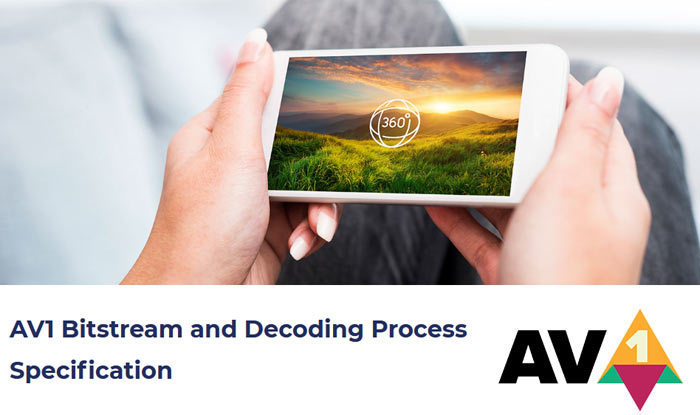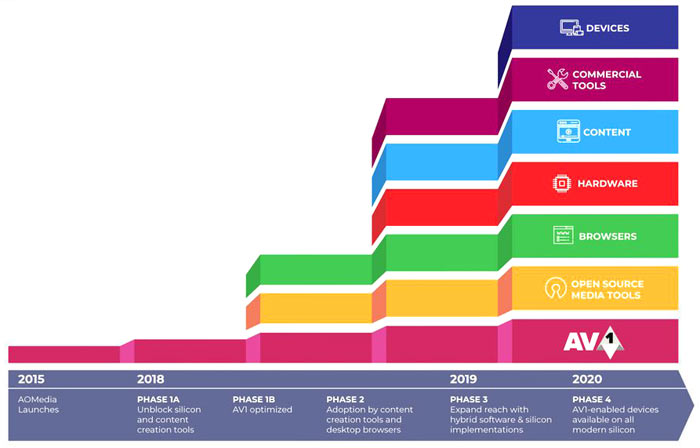The AOMedia Video Codec 1.0 (AV1) specification has been finalised and published. After nearly three years of work on this royalty free codec things should start to look up for 4K UHD and higher online video efficiency and availability as devices, software, and services are updated to support it.
30 per cent greater compression
In headline terms the new AV1 codec delivers HEVC and VP9 quality matching 4K UHD video "at an average of 30 percent greater compression over competing codecs". This royalty free codec has significant heavyweight backing so is almost a guaranteed success, and will gain wide adoption throughout the video and online streaming industry. The announcement press release features supporting quotes, or testimonials, from the likes of Amazon, AMD, Arm, Broadcom, Cisco, Facebook, Google (including YouTube, of course), Intel, Nvidia, Netflix, Microsoft, VideoLAN and more.

It is worth saying again that AV1 is royalty free. Device support for HEVC, for example, has been associated with varying levels of fees over the years and its patents are held by a number of companies. It isn't just the potential fees that hold back implementation it is the legal complexity and admin cost of calculating and paying off such fees. AV1 is open-source software and costs nothing to use.
As you might guess from the companies behind AOMedia's new AV1 codec, it is expected that AV1 will be used in very many ways, wherever an web service or app requires a video connection; streaming movies and TV, video chat, screen sharing, and video game streaming. Its greater efficiency could also help facilitate wireless VR and AR headset innovations.
The release of AV1 includes:
- Bitstream specification to enable the next-generation of silicon
- Unoptimized, experimental software decoder and encoder to create and consume the bitstream
- Reference streams for product validation
- Binding specifications to allow content creation and streaming tools for user-generated and commercial video

Support in major browsers is expected to appear through 2018 and 2019. Already Mozilla Firefox has a test version of the tech. It is expected to be an easy replacement for Google VP9 with that firm's control over Android, Chrome and YouTube. Some services like Netflix and Amazon will face more friction in updating apps and devices for AV1 support - but guidance is now available thanks to the standard specification.














